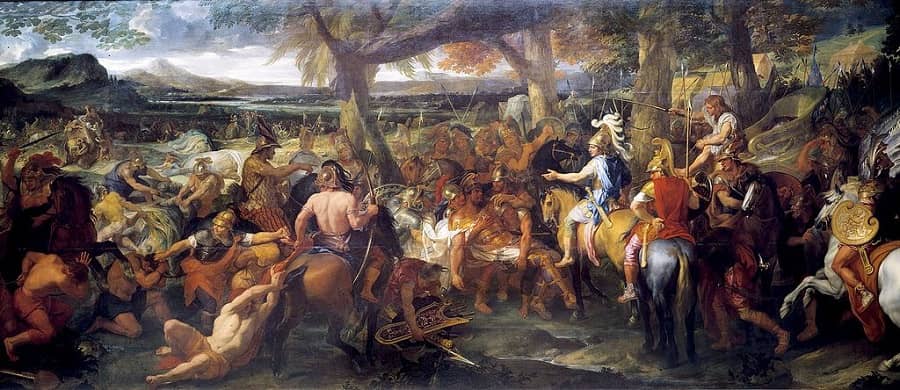Contents
>>>>>>>
>>>>>>>
Persian Invention
Cyrus (558 – 530 B.C)
- Cyrus the Great was the greatest conqueror of the Achaemenian Empire.
- He was the first conqueror who led an expedition and entered into India.
- He captured the Gandhara region.
- All Indian tribes to the west of the Indus river submitted to him and paid tribute.
- His son Cambyses had no time to pay attention towards India.
>>>>>>>
Darius I (522 – 486 B.C)
- Darius I, the grandson of Cyrus, conquered the Indus valley in 518 B.C. and annexed the Punjab and Sindh.
- This region became the 20th Satrapy of his empire.
- It was the most fertile and populous province of the Achaemenian Empire.
- Darius sent a naval expedition under Skylas to explore the Indus.
>>>>>>>
Xerxes (465-456 B.C)
- Xerxes utilized his Indian province to strengthen his position.
- He deployed Indian infantry and cavalry to Greece to fight his opponents. But they retreated after Xerxes faced a defeat in Greece.
- After this failure, the Achaemenians could not follow a forward policy in India.
- However, the Indian province was still under their control.
- Darius III enlisted Indian soldiers to fight against Alexander in 330 B.C.
>>>>>>>
Effects of Persian Invasion
- Impetus to Indo Iranian commerce & trade, which finally became the ground for Alexander’s invasion.
- Use of Kharoshti script bought by Iranian gain popularity in N-W India and some inscription of Ashoka (250 BC) are written in this language.
- Kharoshti script derived from Aramaic script, written from right to left.
- Influence of Persian art in India, Particularly monolithic pillars, and sculptures found on them along with inscriptions.
>>>>>>>

>>>>>>>
Alexander Invasion (327 BC)
- After 2 centuries of Persian invasion, Alexander from Macedonia invaded India.
- Alexander conquered minor Asia along with Iraq & Iran and from Iran he marched into India
- Alexander conquered whole of Persia by defeating Darius 3 in battle of Arabela (330 BC).
- Herodotus, Father of history, wrote that fabulous wealth of India attracted Alexander and moreover his interest in Geographical enquiry and love of natural history urged him to invade India.
- Alexander believed that on eastern side of India lies continuation of the sea and hence by conquering India, he would conquer eastern boundary of the world.
- After conquest of Iran, he marched into India through Khyber pass 327 BC and crossed Indus in 326 BC.
- Ambhi, the ruler of taxila readily submitted to him but Porus whose kingdom lay between Jhelum & Chenab refused to submit to Alexander.
- Alexander stayed in India for 19 months.
>>>>>>>
Battle of Hydaspes (Jhelum)
- Although Porus had a vast army & fought bravely, but he lost to Alexander.
- Alexander, impressed by the bravery of Indian prince reinstated him to his throne and made him his ally.
- Then he advanced as far as river Beas.
- Alexander wanted to move further but war weary, diseased, hot weather of India & 10 year of continuous fighting led to the refusal of Greek soldiers to move further.
- Refusal also came because of the enormous power of Nandas of Magadha
- Hence, Alexander divided his conquered territories into 3 Parts & placed them under 3 Greek governors.
>>>>>>>
Effect of Alexander Invasion
- 1st contact b/w Europe & India paved the way for increased trade & commerce
- Encouraged political unification of India under Mauryas
- The system of small independent states came to an end.
>>>>>>>




